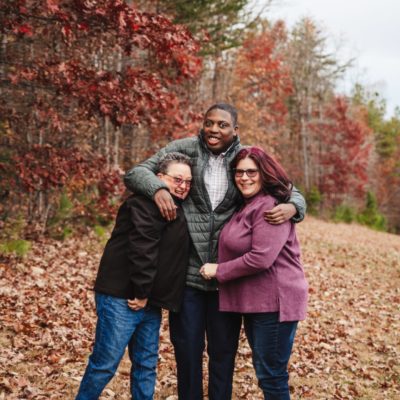A safe space to be independent, to be loved, and to belong. That’s what Teresa and Patricia work every day to provide for their son, Elijah.
“I think he does know that he’s loved more than anything,” said Patricia.
Elijah is 21 years old and has autism. He likes watching TV, walking at the local park, and he especially likes playing hide-and-seek. He feels most comfortable at home in his room, which is set up as an apartment, so it feels like his own place.
Teresa adopted Elijah in 2012. She committed to being there for him for life. That commitment is what led her and her partner, Patricia, to become sponsored residential providers, also known as compassionate caregivers, with DePaul.
“DePaul has been very supportive,” said Teresa.
There are many moments of happiness and celebration in the family’s life. But there are also moments of misunderstanding and frustration. Elijah can’t effectively express his needs verbally, so Teresa and Patricia must work to uncover what need or want is behind his sounds, gestures, and actions. Sometimes he gets emotional about his struggle to communicate. Sometimes he becomes extremely overwhelmed by the world around him.
“We always try to get him to be involved, but sometimes, it’s just too overwhelming for him and that’s okay,” said Teresa.
Over the years, the police have been called by community members who viewed Elijah’s reactions as something other than built up frustration and a struggle to communicate. Each time, Teresa and Patricia have felt overwhelming fear that Elijah will be seen as “a defiant Black man.” They want people to understand Elijah, not fear him.
DePaul grapples with the same questions as Teresa and Patricia. How do we create hope and belonging in our communities when trauma and disabilities are still so misunderstood by the general population? And how do we create hope and belonging when lived experiences of racism have created additional inequities for people of color living with a disability?
At home, Teresa, Patricia, and Elijah have built a safe, welcoming, and understanding space. Their hope, and DePaul’s hope, is that the world outside their front door can become that kind of space, too. What if Elijah was afforded more grace and understanding during his tough moments? What if the community had more education and understanding around autism and individuals with disabilities? For DePaul, that’s a world we’re committed to working toward.

